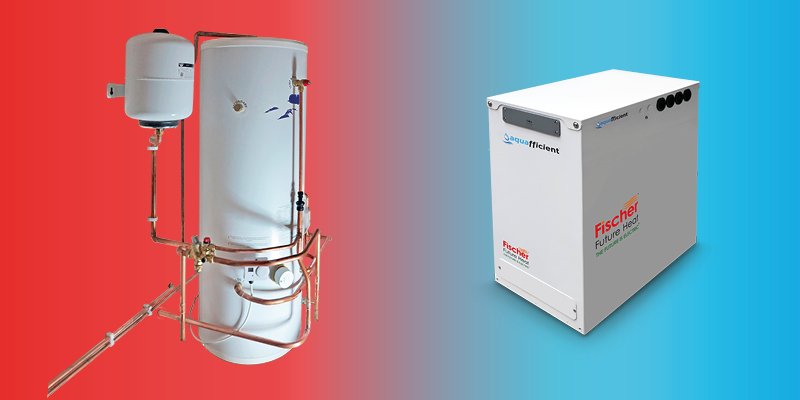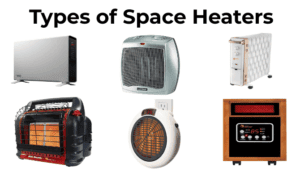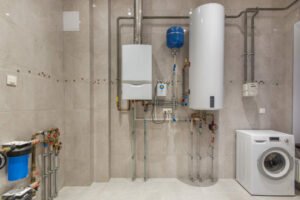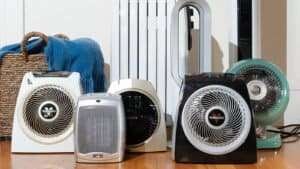
When it comes to maintaining a steady supply of hot water in your home, selecting the best electric water heater is crucial. With a variety of models available, each with unique features and benefits, making an informed decision can be challenging. This guide will compare the top electric water heaters on the market, helping you determine which one is right for your needs.

1. Types of Electric Water Heaters
Before diving into comparisons, it’s essential to understand the three main types of electric water heaters:
a. Tank-Type Electric Water Heaters: These traditional units store a large volume of hot water in a tank, ready for use. They are ideal for households with high hot water demand and offer a consistent supply. However, they occupy more space and can have higher energy consumption.
b. Tankless Electric Water Heaters: Also known as on-demand heaters, these models heat water directly as it passes through the unit. They are compact and provide an endless supply of hot water, but they may have limitations in flow rate and higher upfront costs.
c. Hybrid Electric Water Heaters: Combining tank storage with heat pump technology, hybrid heaters are highly energy-efficient. They use ambient air to heat the water, making them suitable for larger households with high hot water demands.
2. Key Factors to Consider
When comparing electric water heaters, consider the following factors to determine which model suits your needs:
**a. Capacity and Flow Rate: For tank-type heaters, capacity is measured in gallons. For example, a 50-gallon tank is typically sufficient for a medium-sized family. Tankless heaters are evaluated by their flow rate, usually measured in gallons per minute (GPM). Ensure the model you choose can handle your household’s peak hot water usage.
**b. Energy Efficiency: Energy efficiency impacts both operational costs and environmental footprint. Look for units with Energy Star certification, which indicates high energy efficiency. Energy Factor (EF) ratings for tank-type heaters and Uniform Energy Factor (UEF) for tankless models help you compare efficiency.
**c. Installation Space: Consider the space available in your home. Tank-type heaters require more room, while tankless models are compact and can be installed in smaller spaces. Hybrid models are often larger but provide high efficiency.
**d. Cost: Evaluate both the initial purchase price and the long-term operating costs. While energy-efficient models may have a higher upfront cost, they often result in significant savings on utility bills over time.
3. Comparing Top Electric Water Heaters
Here’s a comparison of some of the top electric water heaters on the market in 2024:
**a. Rheem Performance Platinum 50-Gallon Electric Water Heater
- Type: Tank-Type
- Capacity: 50 gallons
- Energy Efficiency: 0.92 EF
- Features: This model offers a high energy efficiency rating, built-in self-cleaning functionality, and a 12-year warranty. It’s ideal for medium to large households with moderate to high hot water needs.
- Pros: High energy efficiency, ample capacity, long warranty.
- Cons: Requires more space for installation.
**b. Ecosmart ECO 27 Tankless Electric Water Heater
- Type: Tankless
- Flow Rate: Up to 6.5 GPM
- Energy Efficiency: 0.99 UEF
- Features: This compact, tankless unit provides an on-demand hot water supply and is highly efficient. It features advanced self-modulating technology to adjust power consumption based on demand.
- Pros: Endless hot water, compact design, high efficiency.
- Cons: Higher initial cost, may require upgrades to electrical system.
**c. Rheem Hybrid Electric Water Heater
- Type: Hybrid
- Capacity: 50 gallons
- Energy Efficiency: 3.55 UEF
- Features: The hybrid model combines heat pump technology with traditional tank storage, offering exceptional energy efficiency and a 10-year warranty. It’s suitable for larger households with high hot water usage.
- Pros: Extremely energy-efficient, reduced operating costs, large capacity.
- Cons: Larger footprint, higher initial investment.
4. Installation and Maintenance
**a. Tank-Type Models: Installation involves connecting the unit to your home’s water supply and power. Regular maintenance includes checking the anode rod and flushing the tank to prevent sediment buildup.
**b. Tankless Models: Installation can be more complex, often requiring professional assistance to ensure proper venting and electrical connections. Maintenance involves descaling the unit periodically to prevent mineral buildup.
**c. Hybrid Models: These require sufficient space for installation and may need a dedicated circuit. Maintenance includes cleaning the air filter and checking the heat pump components regularly.
5. Safety and Reliability
**a. Tank-Type Electric Water Heaters: Look for models with safety features such as temperature and pressure relief valves and overheat protection. Reliable brands often offer extended warranties for added peace of mind.
**b. Tankless Electric Water Heaters: Ensure the unit has advanced safety features like overheat protection and leak detection. Choose a reputable brand with positive customer reviews.
**c. Hybrid Electric Water Heaters: Check for comprehensive safety features and a robust warranty. Hybrid models generally come with advanced controls and safety mechanisms to enhance reliability.
6. Conclusion
Choosing the best electric water heater for your home involves comparing different types, capacities, energy efficiencies, and features. Tank-type heaters offer reliable, consistent hot water, while tankless models provide space-saving benefits and endless supply. Hybrid models combine the best of both worlds with exceptional energy efficiency and large capacity.
Evaluate your household’s hot water needs, available installation space, and budget to make an informed decision. By comparing top models and considering factors such as efficiency, cost, and features, you can find the ideal electric water heater to meet your needs in 2024. Whether you opt for a traditional tank-type, a modern tankless, or an energy-efficient hybrid, the right choice will ensure you enjoy reliable hot water and long-term savings.





